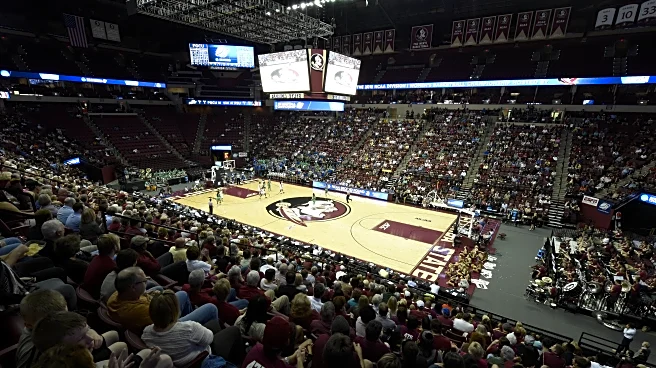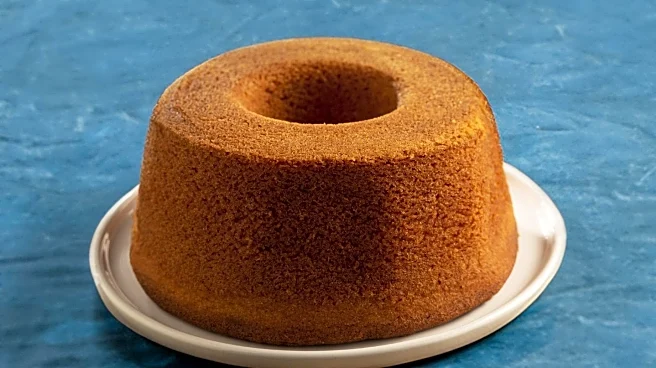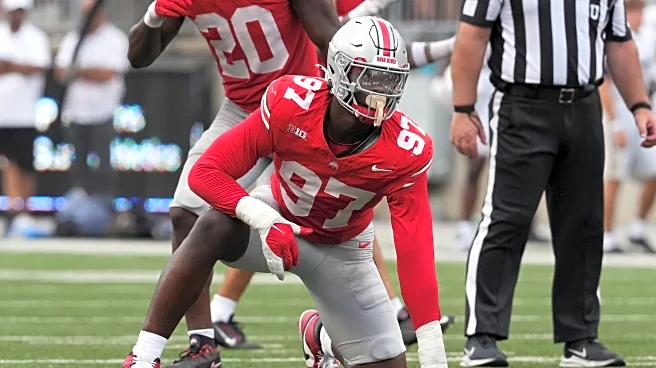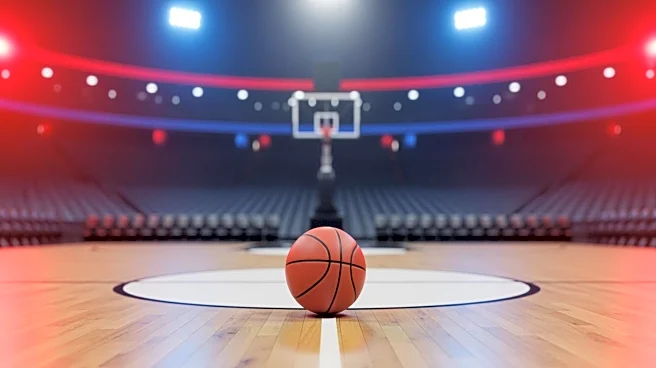For any NCAA Tournament bubble team (or perhaps aspiring bubble team), the road to March Madness often requires some of the “uncontrollables” to bounce your way. Injuries need to be minimal, your bubble peers need to drop a couple of winnable games, and winning the three-point lottery against your toughest opponents is always nice.
However, there’s one component to a successful bubble-bid that is very much within a team’s control: its non-conference schedule.
In recent years, Florida State’s non-conference
schedule left so little margin for error that the ‘Noles were often out of realistic contention for an at-large bid by early December. This year, at least on paper, that is not the case. Every March when perusing projected brackets you tend to see a team or two that, despite having just 18 or 19 wins, seems to be a bracketology darling.
Thanks to FSU’s schedule, this year the Seminoles could potentially be one of those darlings.
What makes for a good NCAA Tournament resume?
Before we dig into what makes for smart scheduling, it’s important to remember that the postseason tournament in college basketball, like college football, is one in which beauty is determined by a committee. This committee is tasked with selecting 37 at-large selections for their invitational. And while the preferred metric-de jour changes, there’s two components that are consistently valued: 1) a team’s net rank, and 2) a team’s record against quad 1 and quad 2 games.

Looking at the above example of a “team sheet” used by the committee, you’ll see that the team’s NET ranking is the very first ranking listed in the upper left corner.
You’ll also note that the bulk of the sheet is taken up by a detailed breakdown of the team’s performance in each of the quadrants. What determines a game’s placement within the quadrants? Why, your opponent’s NET rank, of course, in concert with a sliding scale depending on whether the game was played at home, on a neutral site, or on the road.
Avoiding the dreaded middle tier
The NET ranking formula is proprietary (because why would the NCAA want transparency in how they hand out invitations to their tournament?), so we don’t know the exact formula. But we do have a pretty good idea and here’s what is true in simplest terms: beating teams by much more than the computers expected is handsomely rewarded. Oh sure, it’s nice to beat good teams too—although contrary to popular belief, the actual rank of your opponent means nothing when it comes to the boost or hit to your own ranking. But nothing zooms you up the ranks faster than winning by 40 when you were only expected to win by 18 (or losing by 4 when you were expected to lose by 22).
So how do you best accomplish this? By scheduling really bad teams and beating the snot of them. Step one of that process is already in place, as FSU faces four teams ranked 288th or worse in KenPom’s preseason list, plus another three between 241 and 272. All of these games are at home. Now, obviously FSU still has to go out and take care of business. The schedule is only as good as the team takes advantage. If the ‘Noles are 18-20 point favorites against Alcorn State to open the season, this only works if they win something like 92-52. Nonetheless, the opportunity is there.
If destroying bad teams can boost your NET rank, why not just schedule a dozen dregs? That’s where the quadrants come in. The quad system is basically your schedule bucketed into four tiers. The name of the game is to avoid losses in the lower two tiers and pile up wins in the upper two. Of course, you can’t win Q1 and Q2 games if you don’t play Q1 and Q2 games, and recent schedules have simply not yielded many opportunities. This year’s schedule should reverse that trend. Thanks to the location-based sliding scale, games away from home against UF, Houston, and Dayton will likely be Q1 games, while Texas A&M and UGA should be Q2 at worst. Win two of these five and you’re in position to be in position as you start conference play. Win three and you’re feeling downright bubblicious.
As for that dreaded middle tier, the games against opponents good enough to beat you (or at minimum prevent you from smashing the spread), but not good enough or properly located to be a meaningful feather in your cap on Selection Sunday, it appears like Florida State only scheduled one such game this season, UMass. Compare that to the 2023-24 season when the ‘Noles played 6 non-con games against teams that would finish between 72 and 176 in KenPom. FSU went 2-4 in those matchups, including a loss to Lipscomb on December 30th that all but ended their tourney hopes.
If you grew up in the 80s or 90s, chances are you’ve used the phrase “so, you’re telling me there’s a chance” at least a few dozen times. If, for whatever reason, you don’t know who Lloyd Christmas is, these were the unabashedly hopeful words said by a man who was just told the odds of him landing a date with his dream girl were about 1 in a million. While we still don’t know just how good the product on the court will, smart scheduling gives FSU a better-than-Lloyd-Christmas chance at getting a date to the Big Dance.
FSU Men’s 2025-26 Basketball Schedule
- Tuesday, Nov. 4 (7:00 PM): Alcorn State Braves (Tallahassee, FL)
- Friday, Nov. 7 (7:00 PM): Alabama State Hornets (Tallahassee, FL)
- Tuesday, Nov. 11 (7:00 PM): Florida Gators (Gainesville, FL)
- Tuesday, Nov. 18 (7:00 PM): UT Martin Skyhawks (Tallahassee, FL)
- Friday, Nov. 21 (6:00 PM): Georgia Southern Eagles (Tallahassee, FL)
- Tuesday, Nov. 25 (7:00 PM): CSU Bakersfield Roadrunners (Tallahassee, FL)
- Friday, Nov. 28 (5:00 PM): Texas A&M Aggies (Tampa, FL – Battle in the Bay)
- Tuesday, Dec. 2 (9:00 PM): Georgia Bulldogs (Tallahassee, FL – ACC/SEC Challenge)
- Saturday, Dec. 6 (8:00 PM): Houston Cougars (Houston, TX – Houston Hoops Showdown)
- Saturday, Dec. 13 (12:00 PM): UMass Minutemen (Sunrise, FL – AutoNation Orange Bowl Classic)
- Tuesday, Dec. 16 (TBA): Dayton Flyers (Dayton, OH)
- Friday, Dec. 19 (7:00 PM): Mississippi Valley State Delta Devils (Tallahassee, FL)
- Monday, Dec. 22 (7:00 PM): Jacksonville Dolphins (Tallahassee, FL)
- Tuesday, Dec. 30 (7:00 PM): North Carolina Tar Heels (Chapel Hill, NC)
- Saturday, Jan. 3 (3:45 PM): Duke Blue Devils (Tallahassee, FL)
- Saturday, Jan. 10 (12:00 PM): NC State Wolfpack (Tallahassee, FL)
- Tuesday, Jan. 13 (9:00 PM): Syracuse Orange (Syracuse, NY)
- Saturday, Jan. 17 (6:00 PM): Wake Forest Demon Deacons (Tallahassee, FL)
- Tuesday, Jan. 20 (7:00 PM): Miami Hurricanes (Coral Gables, FL)
- Saturday, Jan. 24 (4:00 PM): SMU Mustangs (Dallas, TX)
- Wednesday, Jan. 28 (7:00 PM): California Golden Bears (Tallahassee, FL)
- Saturday, Jan. 31 (6:00 PM): Stanford Cardinal (Tallahassee, FL)
- Saturday, Feb. 7 (4:00 PM): Notre Dame Fighting Irish (South Bend, IN)
- Tuesday, Feb. 10 (7:00 PM): Virginia Cavaliers (Tallahassee, FL)
- Saturday, Feb. 14 (2:00 PM): Virginia Tech Hokies (Blacksburg, VA)
- Tuesday, Feb. 17 (6:00 PM): Boston College Eagles (Tallahassee, FL)
- Saturday, Feb. 21 (TBA): Clemson Tigers (Clemson, SC)
- Tuesday, Feb. 24 (9:00 PM): Miami Hurricanes (Tallahassee, FL)
- Saturday, Feb. 28 (12:00 PM): Georgia Tech Yellow Jackets (Atlanta, GA)
- Wednesday, Mar. 4 (9:00 PM): Pitt Panthers (Pittsburgh, PA)
- Saturday, Mar. 7 (2:00 PM): SMU Mustangs (Tallahassee, FL)















